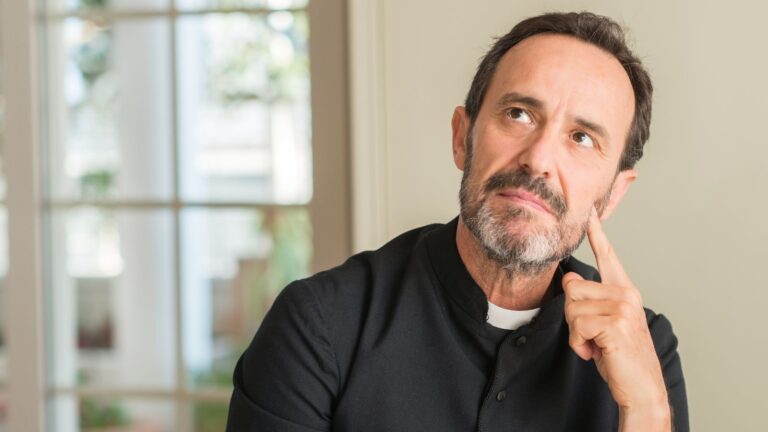In recent years, there’s been a noticeable shift in societal attitudes toward religion, with more individuals moving away from traditional beliefs and practices. This trend reflects a broader change in how people view spirituality and its role in their lives. Curious about what’s driving this transformation? This article explores some of the main factors contributing to the decline in religious affiliation and engagement, offering insights into the evolving landscape of faith and belief.
Consumer Capitalism and Spirituality

This is an interesting one you may not have considered before. Several key religious figures, including Pope Francis, have suggested that consumerism and capitalism are driving us away from religion. It is argued that the excessiveness and materiality of modern-day life push us away from seeking a greater purpose and toward more surface-level pleasures.
Political Entanglement of Religion

Whether we like it or not, religion has become more and more politicized in recent times. The association of religion with particular political agendas is off-putting for many, especially younger generations, who consequently steer away from religious affiliation.
Inclusivity and Social Issues

Modern culture is becoming increasingly accepting of historically disadvantaged groups, including the LGBTQ+ community. However, in many cases, religion and religious people are not on the same page as this progressive movement, causing a disconnect that draws more individuals away from religion.
The Role of Education and Knowledge

With the rise of technology and education, we have more information at our fingertips now than ever before. This is undeniably a huge net positive. However, this shift has also caused more religious people questioning their faith to be exposed to contradictory evidence and opposing viewpoints, leading a significant number to drift away from their faith.
Individualism and Personal Freedom

While our older generations were more focused on community and traditional family values, our youngsters are prioritizing individualism and personal freedom. More individualistic people sometimes feel restricted by religious laws and beliefs, causing them to prefer spirituality or atheism.
Decline in Religious Socialization

The rise of technology, among other modern factors, has made us more isolated from one another than ever before. One consequence of this is that religious socialization, including church gatherings and communal practices, is on the decline. With less exposure to fellow religious individuals, it becomes easier to leave one’s faith behind.
Accessibility of Diverse Belief Systems

Thanks to advancements in technology, it is now easy to gain access to information about a wide range of religions and beliefs. Naturally, with more belief systems to “choose from,” people are increasingly exploring alternative spiritualities or combining elements from multiple religions.
Disenchantment with Religious Institutions

Due to recent scandals and controversies involving religious institutions, many people are becoming disillusioned with these spiritual pillars. There is also a rising sense that religious organizations are often hypocritical, inauthentic, and corrupt, which is a deterring force for many.
Shift Toward Secularization

Another significant factor is the trend toward secularization, which is becoming ever more apparent in modern societies. Both government and societal structures are becoming more secular, and there’s a growing acceptance of non-religious worldviews.
Evolution of Moral and Ethical Values

Modern society is undergoing a significant evolution in moral and ethical values as we shift away from old religious moral codes. Young Brits commonly view these ancient beliefs and practices as outdated and unethical, making them more resistant to religious affiliation.
Interfaith Relationships and Marriages

All over the UK, we’re seeing a striking increase in the number of interfaith and interracial relationships and marriages. This increased exposure to different faiths and practices inevitably leads to a more inclusive and nuanced approach to religion, and this often involves a shift away from hard-held religious beliefs.
Global Shift in Religious Influence

One key factor in the decline of religiosity is the decrease in religion’s influence on the UK. While over 80 countries still have an official state religion, increased government restrictions on religion and similar factors have caused a global shift away from the prominence of religious influence.
Millennial Disengagement from Organized Religion

According to UVA Today, millennials are increasingly turning away from organized religion in favor of spirituality and atheism. This is largely due to recent Catholic church abuse scandals and controversial debates on the subject of gay marriage. Millennials who believe in God are now less likely to affiliate themselves with church organizations.
Rise in Non-Religious Brits

While many British individuals are merely shifting their spiritual focus away from organized religion, others are shedding their religious identity altogether. Both those who grew up with religious parents and nonreligious parents are frequently opting to identify as having no religion in adulthood.
Science and Logic vs. Religious Beliefs

Our younger generations are increasingly looking to science rather than faith for key life questions. This shift toward a more logical, evidence-based perspective is naturally leading to a decrease in those identifying as religious.
The Quest for Authenticity and Personal Identity

As we become more conscious of mental health and individualities, we are also increasingly seeking self-discovery and authentic experiences. Many perceive religion as a limitation of self-expression and authenticity, causing us to look for a sense of purpose outside of religious affiliations.
The Influence of New Age and Eastern Philosophies

While the modern increase in technology has exposed us to a variety of different religions, we seem to have been particularly heavily influenced by Eastern philosophies. The integration of practices such as yoga, meditation, and mindfulness has caused many of us to identify more with spirituality than with any particular religion.

